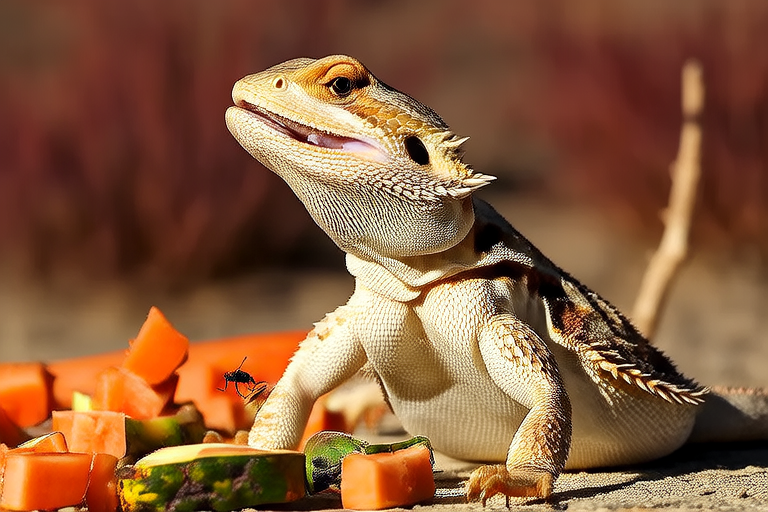The Ultimate Guide to Feeding Your Bearded Dragon Like a Pro
Proper nutrition is crucial for the health and longevity of your bearded dragon. A well-balanced diet ensures that your pet maintains optimal energy levels, supports growth, and prevents diseases. Understanding what your bearded dragon needs can be daunting, but with this guide, you’ll learn how to feed your scaly friend like a pro.
Essential Nutrients for Bearded Dragons
Your bearded dragon requires a balanced intake of proteins, fats, carbohydrates, vitamins, and minerals. Proteins are vital for muscle development and repair, while fats provide energy and aid in vitamin absorption. Carbohydrates offer quick energy sources. Vitamins and minerals, particularly calcium and vitamin D3, are essential for bone health and metabolism regulation.
Ideal Diet Composition
Insects
Insects should make up the majority of a juvenile bearded dragon’s diet, transitioning to more plant-based foods as they age. Common feeder insects include crickets, dubia roaches, and mealworms. Always ensure that insects are gut-loaded (fed nutritious food themselves) before offering them to your dragon.
Vegetables
Vegetables should form the core of an adult bearded dragon’s diet. Offer a variety of leafy greens such as kale, collard greens, and dandelion greens. Other suitable vegetables include squash, bell peppers, and carrots. Avoid feeding spinach and rhubarb due to oxalate content, which can interfere with calcium absorption.
Fruits
Fruits should be offered sparingly as treats. Opt for nutrient-rich options like berries, melons, and mangoes. Fruits are high in sugar, so moderation is key to prevent obesity and related health issues.
Feeding Frequency and Portion Sizes
Juvenile bearded dragons need to eat daily, while adults can be fed every other day. Portion sizes depend on the dragon’s size and activity level. As a rule of thumb, offer as many insects or vegetables as your dragon can consume in 15 minutes. Monitor their appetite and adjust portions accordingly.
Hydration
Bearded dragons obtain most of their water from their food, but it’s important to provide a shallow dish of clean water. Mist your dragon occasionally to encourage drinking and maintain humidity levels. Regular access to fresh water helps prevent dehydration, especially during shedding periods.
Calcium Supplementation
Calcium is critical for bone health. Dust insects with a calcium supplement twice weekly. For adult dragons, choose a supplement without added vitamin D3, as excessive amounts can lead to hypercalcemia. Ensure that your dragon has access to UVB lighting, which aids in vitamin D3 synthesis, promoting better calcium absorption.
Common Feeding Mistakes and Their Impacts
Overfeeding insects can lead to obesity and metabolic bone disease. Feeding too few vegetables results in malnutrition. Inadequate hydration causes dehydration and stress. Ignoring calcium supplementation leads to weak bones and potential paralysis. Avoid these pitfalls by researching thoroughly and consulting a veterinarian when necessary.
Tips for Meal Variety and Enrichment
Varying the diet keeps meals interesting and ensures a broad spectrum of nutrients. Rotate insect types and vegetable varieties. Introduce new foods gradually to avoid digestive upset. Use feeding tools or hide vegetables within a foraging box to stimulate natural hunting behaviors, enhancing mental and physical stimulation.
Monitoring Eating Habits as Indicators of Health
Closely observe your bearded dragon’s eating habits. A sudden decrease in appetite might indicate illness, while increased consumption could signal stress or environmental issues. Regularly weigh your dragon to track growth patterns and identify potential weight gain or loss. Healthy bearded dragons are active, alert, and exhibit normal eating behaviors.
By following these guidelines, you’ll set your bearded dragon on a path towards a long, healthy life. Remember, every dragon is unique, so adapt these suggestions based on your pet’s specific needs and preferences. With dedication and care, you’ll become a true expert in feeding your bearded dragon like a pro.
